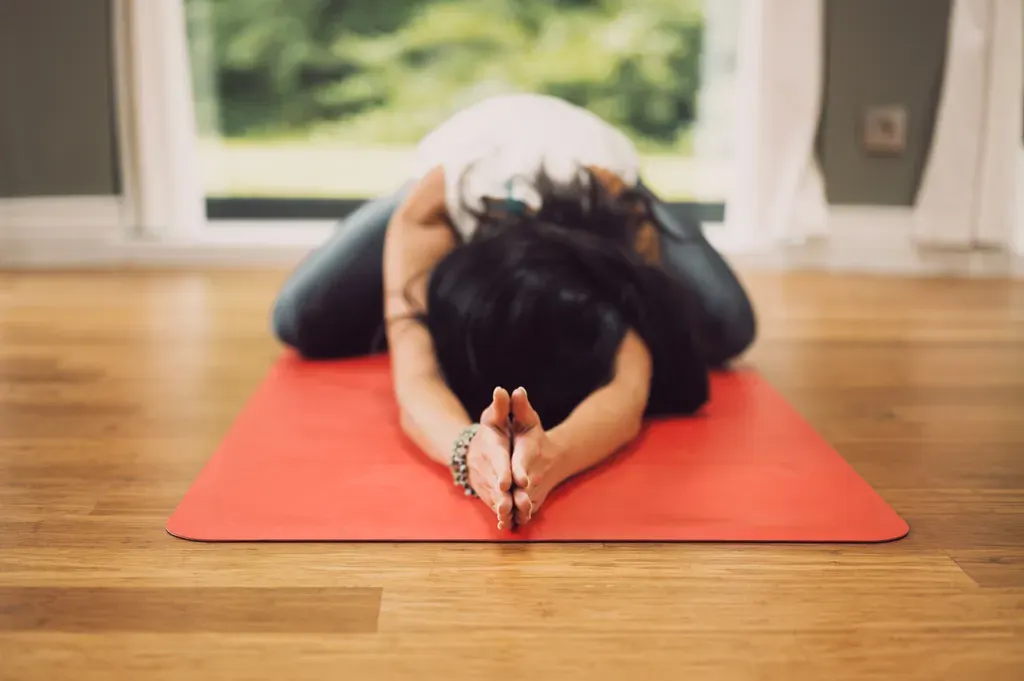7 Ways to Reduce Anxiety
Anxiety is a common mental health issue that affects millions of people worldwide. It can significantly impact a person's daily life and overall well-being. However, there are effective strategies that can help reduce anxiety and improve mental well-being.

The importance of managing anxiety and improving mental well-being
Managing anxiety is crucial for maintaining good mental health. When left unaddressed, anxiety can lead to other physical and mental health problems. Taking steps to reduce anxiety and improve mental well-being can have a positive impact on one's quality of life.
Remember, everyone's journey to managing anxiety is unique. It may take time to find the strategies that work best for you. If anxiety persists or becomes overwhelming, it's important to seek professional help from a mental health provider.
By taking proactive steps towards managing anxiety, you can improve your mental well-being and lead a more fulfilling life. [1][2]
Take a Mental Break
If you're feeling overwhelmed by anxiety, it's important to take a break and give yourself some time to relax and refocus. Here are some tips for reducing anxiety:
Using mindfulness and guided imagery to relax and refocus
- Practice mindfulness meditation: By focusing your attention on the present moment and observing your thoughts and emotions without judgment, mindfulness meditation can help calm your mind and reduce anxiety.
- Try guided imagery: Guided imagery involves visualizing calming and peaceful scenes or situations. This can help shift your focus away from anxiety-inducing thoughts and create a sense of relaxation.
- Deep breathing exercises: Taking slow, deep breaths can activate your body's relaxation response and help you feel more grounded and centered.
- Take a walk or engage in physical activity: Engaging in physical activity can help release endorphins, which are known to improve mood and reduce anxiety.
- Practice self-care: Engage in activities that bring you joy and relaxation, such as taking a bath, listening to music, or reading a book.
Remember, reducing anxiety takes practice, so be patient with yourself. Finding what works best for you may require some trial and error. [3][4]
Healthy Lifestyle Habits
Eating well-balanced meals and avoiding triggers like alcohol and caffeine
Maintaining a healthy lifestyle is crucial when it comes to managing anxiety. One important aspect is ensuring that you are eating well-balanced meals. A diet rich in fruits, vegetables, lean meats, and healthy fats can improve your sense of well-being and mood. Avoiding processed foods and foods high in sugar can help stabilize blood sugar levels, reducing feelings of anxiety.
It is also important to be mindful of triggers like alcohol and caffeine. While they may provide temporary relief, excessive drinking and caffeine consumption can lead to their own set of emotional and physical problems. Opt for plain water or sparkling water instead of sugary sodas, and limit consumption of alcohol and coffee.
By taking care of your diet and making healthier choices, you can support your mental well-being and better manage anxiety. Remember to consult with a doctor or nutritionist for personalized guidance, as each individual's dietary needs may vary. Implementing a balanced diet along with other self-care practices like mindfulness techniques, stress relief, and good sleep hygiene can contribute to a comprehensive approach to managing anxiety. [5][6]
Do yoga or Pilates
Practicing yoga or Pilates can be incredibly beneficial for reducing anxiety. These practices focus on breathing techniques, mindfulness, and gentle movements that help to calm the mind and relax the body. Here are some key reasons why yoga or Pilates can be helpful in reducing anxiety:

- Endorphins and relaxation: Yoga and Pilates both release endorphins, which are natural feel-good hormones that help reduce stress and anxiety. The relaxing and slow-paced nature of these practices allows for a sense of calm and peace.
- Mental focus: Both yoga and Pilates require a level of mental focus and concentration, which can help distract from anxious thoughts and worries. Focusing on the present moment during practice helps to alleviate symptoms of anxiety.
- Breathing techniques: Yoga particularly emphasizes breathing techniques that promote relaxation and reduce stress responses. These techniques can be applied in stressful situations outside of class, helping to manage anxiety in daily life.
- Improved sleep: Regular practice of yoga or Pilates can improve sleep quality, aiding in reducing fatigue and overall anxiety levels.
- Sense of community: Taking part in yoga or Pilates classes can provide a supportive and social environment, reducing feelings of isolation often associated with anxiety disorders.
Incorporating yoga or Pilates into your routine can have profound effects on your mental well-being, helping to reduce anxiety and promote overall wellness. [7][8]
Quality Sleep
One of the most effective ways to reduce anxiety is by prioritizing quality sleep. When we don't get enough sleep or experience poor sleep quality, it can significantly impact our mental health. Lack of sleep can increase feelings of anxiety and make it more difficult to effectively manage stress.
The impact of a good night's sleep on anxiety levels
Getting a good night's sleep can have a profound impact on reducing anxiety levels. When we are well-rested, we are better equipped to handle stress and regulate our emotions. Good sleep helps to restore our body and mind, improving our overall mental well-being. It is important to establish a bedtime routine, create a calm sleep environment, and practice relaxation techniques to promote better sleep hygiene. Prioritizing quality sleep can lead to reduced anxiety and improved overall mental health. [9][10]
Limiting Self-Criticism
Recognizing that anxiety is a normal response and practicing self-compassion

When it comes to dealing with anxiety, it's important to limit self-criticism and practice self-compassion. Recognize that anxiety is a normal response to certain situations and experiences. Instead of berating yourself for feeling anxious, practice self-compassion by treating yourself with kindness, understanding, and acceptance.
Here are some tips to reduce self-criticism and practice self-compassion for anxiety:
- Be gentle with yourself: Instead of being harsh and judgmental towards yourself, be kind and understanding. Treat yourself as you would treat a friend going through a difficult time.
- Embrace common humanity: Remember that you are not alone in experiencing anxiety. Many people go through similar challenges and struggles. Embracing this common humanity can help reduce feelings of shame and isolation.
- Cultivate mindfulness: Practice mindfulness by being fully present in the moment and observing your thoughts and feelings without judgment. This helps you experience your anxiety with greater compassion and clarity.
- Write a loving letter to yourself: When feeling anxious, write a heartfelt letter to yourself, appreciating your strengths and offering words of encouragement and love.
- Create releasing statements: If you catch yourself engaging in self-critical thoughts, use releasing statements to let go of these thoughts. Tell yourself that it's okay to feel anxious and that it will pass.
By limiting self-criticism and practicing self-compassion, you can effectively manage your anxiety and cultivate a kinder relationship with yourself. Remember, self-compassion is an inner resource that allows you to respond to anxiety with kindness and understanding. [11][12]
Putting Things into Perspective
Anxiety can be overwhelming, but there are strategies you can implement to reduce its impact on your daily life. One of the most effective ways to do this is by putting things into perspective. By challenging anxious thoughts and questioning their likelihood, you can regain control over your emotions.

Challenging anxious thoughts and questioning their likelihood
- Identify your negative thoughts: Start by recognizing the negative thoughts that contribute to your anxiety. Write them down and examine them closely.
- Evaluate the evidence: Ask yourself if there is evidence to support these negative thoughts. Often, our anxious thoughts are based on unfounded assumptions.
- Consider alternative perspectives: Explore alternative explanations or viewpoints that challenge your negative thoughts. Are there other ways to interpret the situation?
- Weigh the likelihood: Assess the likelihood of your fears coming true. Often, our anxieties exaggerate the probability of negative outcomes.
- Focus on positive outcomes: Shift your attention towards more positive possibilities and outcomes. Remind yourself of past successes and how you have overcome challenges.
By actively challenging and questioning your anxious thoughts, you can gradually reduce their power over you. Remember, putting things into perspective takes practice, but it can lead to a more balanced and less anxious mindset. [13][14]
Seek Support
The benefits of talking to trusted friends or family members
When dealing with anxiety, seeking support from trusted friends or family members can be incredibly beneficial. Here are a few reasons why:
- Emotional Support: Talking to someone about your anxiety can provide emotional support and reassurance. It helps you feel heard and understood, and provides a safe space to express your feelings.
- Validation: Friends or family members can validate your experiences and feelings, letting you know that what you're going through is normal. This validation can help alleviate anxiety and reduce feelings of isolation.
- Perspective: Talking to others can offer a fresh perspective on your situation. They may provide insights or suggestions that you hadn't considered, helping you gain a new understanding of your anxiety.
- Coping Strategies: Friends or family members who have experienced anxiety themselves may have valuable coping strategies to share. Their advice and techniques could prove helpful in managing and reducing anxiety symptoms.
Remember, seeking support doesn't mean burdening others with your problems. It's about reaching out to trusted individuals who care about your well-being and want to offer their support during challenging times. Don't hesitate to lean on those around you when you need it most. [15][16]
Professional Help
Knowing when to seek guidance from a healthcare provider or therapist
When it comes to reducing anxiety, it's important to recognize when you may need professional help. Here are some signs that indicate it may be time to seek guidance from a healthcare provider or therapist:

- Persistent symptoms: If your anxiety symptoms persist for an extended period of time and interfere with your daily life, it may be a sign that you need professional help. Symptoms such as intense worry, panic attacks, and difficulty sleeping should not be ignored.
- Impact on daily functioning: If your anxiety is causing significant impairment in your ability to work, study, or maintain relationships, it's important to seek professional guidance. A healthcare provider or therapist can help you develop coping strategies and provide appropriate treatment options.
- Physical health concerns: Anxiety can take a toll on your physical health, leading to symptoms such as headaches, stomachaches, and muscle tension. If you are experiencing physical symptoms as a result of anxiety, it's important to consult with a healthcare provider to rule out any underlying medical conditions.
Remember, seeking help for anxiety is not a sign of weakness. It shows strength and a proactive approach to taking care of your mental wellbeing. A healthcare provider or therapist can provide the necessary support and resources to help you manage your anxiety effectively. [17][18]
Conclusion
Managing anxiety is crucial for maintaining mental health and overall well-being. By implementing tips and techniques such as deep breathing exercises, challenging negative thoughts, and practicing self-care, individuals can effectively reduce anxiety and lead a happier life. It is important to remember that managing anxiety takes time and effort, but with consistency and perseverance, it is possible to take control of anxiety levels. Seeking professional help when necessary is also important for those experiencing severe anxiety symptoms. By prioritizing mental health and utilizing these strategies, individuals can effectively manage anxiety and improve their quality of life.
Encouragement to implement these tips and take control of anxiety levels
Take the first step towards managing your anxiety by implementing the tips and techniques mentioned in this article. Start practicing deep breathing exercises whenever you feel overwhelmed, challenge negative thoughts by replacing them with positive affirmations, and make self-care a priority in your daily life. Remember that managing anxiety is a journey, and progress may come gradually. Be patient with yourself and seek professional help if necessary. You have the power to take control of your anxiety levels and lead a happier, more fulfilling life. [19][20]












